Relationships are an incredible journey filled with love, connection, and shared experiences. But, sometimes, the bubble bursts and things can go a little off-track. We have listed below 15 signs of emotional detachment in a relationship that you can watch out for. When emotional detachment in a marriage or relationship sets in, we find ourselves lost. Suddenly, there is a wall between you and your partner. And all the incredible, romantic sparks that used to fly have fizzled out!
Well, fear not, my dear friend! You are in the right place. Knowing the signs of emotional detachment in marriage or relationships will give you valuable insights into what might be causing the emotional disconnect in your personal life. This, in turn, would pave the way toward rebuilding that deep bond you crave in your relationship.
Grab yourself a cup of coffee (or tea, if that’s more your style) because it’s time to tackle this together! We will share expert advice from psychotherapist Dr. Aman Bhonsle (Ph.D., PGDTA), who specializes in relationship counseling and Rational Emotive Behavior Therapy. Let’s delve deeper to identify the 15 signs of emotional detachment in relationships and take a look at some tips to overcome it!
What Does Emotional Detachment Look Like?
Table of Contents
When you develop emotional detachment in a relationship or a marriage, it can be like watching a movie in black and white. It’s like having this invisible barrier between you and your partner, where the colors and warmth of connection fade away. You may notice a need for deep emotional investment or genuine interest in each other’s lives. There is suddenly an emotional distance that is new to you! It is agonizingly painful to your psyche!
Conversations become superficial, filled with small talk and empty pleasantries. Sharing your innermost thoughts and vulnerabilities becomes a thing of the past. It’s as if you’re living in parallel worlds, where emotional numbing and distant existence has replaced the connection that once bound you. It’s not about fighting or arguing. It’s the quiet erosion of affection and intimacy. It is a classic example of poor communication. You may feel lonely in a relationship even when you’re physically together, longing for the emotional closeness that seems to have slipped away. To sum it all up, you feel you are experiencing emotional detachment.
It’s a sad state where you may wonder if your partner cares anymore. The absence of emotional depth leaves you yearning for something more, questioning if the love that once thrived is now lost to the winds of detachment.
What Causes Emotional Detachment?
Emotional detachment in a relationship or marriage can have various underlying causes, sort of like a tangled web of reasons. Sometimes, it starts with a sense of gradually drifting apart, as life’s demands and responsibilities take priority over nurturing the emotional connection.
Stress, work pressure, or personal issues can consume one or both partners, making it challenging to invest the time and energy needed for emotional intimacy. Unresolved conflicts and unresolved resentments can build up like tiny cracks in the foundation of the relationship, gradually widening the emotional disconnect. Past hurts or post-traumatic stress disorder can cast a shadow on your own emotions, making it difficult to trust and open up fully, leading to emotional blunting. These are genuine challenges when dating someone with emotional detachment disorder.
When every conversation turns into an argument, you tend to avoid complex topics. Communication breakdowns can also make you feel you are experiencing emotional detachment. And let’s not forget about changes in life circumstances, like growing apart due to different interests or goals.
Ultimately, emotional detachment in a relationship can result from a combination of factors, a cocktail of circumstances that slowly erodes the dynamic fabric of the relationship. Dr. Bhonsle states, “The core catalyst for emotional detachment in relationships lies in divergent values and contrasting thought processes. Embracing and navigating these differences is essential to prevent detachment, regardless of the relationship’s stage.”
Related Reading: How To Emotionally Detach Yourself From Someone – 10 Ways
15 Signs Of Emotional Detachment In Your Relationship
You know how relationships can be, right? All relationships have ups and downs. Sometimes, we don’t realize when we start drifting apart. It happens to the best of us, honestly! Emotional detachment in a marriage is more common than you would think. Recognizing it is the first step toward getting back on track. It’s like a divide has formed between you and your partner, making it harder to connect on a deeper emotional level.
When you start noticing signs or behaviors indicating this emotional detachment, paying attention to them is essential. Fix emotional detachment before it shakes the very foundation of your relationship for good! Remember, a mental health condition, or an undiagnosed emotional involvement bipolar disorder, can affect a person’s ability to respond correctly in a relationship.
Now that you’re in the know, it’s time to take action and reignite that emotional spark in your relationship! So, let’s dive into these signs of detachment issues in relationships and see if any of them hit home. Once you identify them, or you are at the stage where you have just noticed that your partner is detaching, you’ll be well-equipped to make positive changes and strengthen your bond like never before. Let’s do this!
1. Lack of communication and emotional expression
Finding that your relationship lacks communication and emotional expression indicates emotional detachment. “Emotional detachment breeds guesswork, widening the margin of error in relationships, work, and social life. Effective communication is the key to trading information efficiently, enriching connections,” says Dr. Bhonsle. Some signs of such lack of communication in a relationship are:
- Lack of deep conversations: You and your partner don’t engage in deep conversations or openly share feelings
- Emotional bubbles: You feel you’re living in separate emotional bubbles, where your needs and emotions go unnoticed and unaddressed
- Neglect of emotional intimacy: This can lead to resentment and frustration, potentially causing conflicts and further pushing partners apart
2. Avoidance of intimacy

According to studies, when you develop emotional detachment, it can show through a noticeable decrease in physical and emotional intimacy. As a result, you may experience a sense of disconnect and find yourselves avoiding the affectionate gestures that once brought you closer. The emotional connection seems to be lost.
Those moments of tender closeness might become scarce, leaving you longing for those sweet acts of love that may have become less frequent or absent. The emotional distancing hurts the most, widening the disconnect even further. Remember, open communication and efforts to rekindle affection can work wonders in keeping your bond strong and full of warmth.
3. Decreased empathy and understanding
You might notice a decreased capacity for empathy and understanding toward your partner. Connecting with and validating each other’s emotions and experiences become challenging. There is minimal to no emotional involvement. You notice that your partner is detaching himself from everything that once held your relationship solid. Here are some signs of lack of empathy in a relationship:
- You no longer try to understand your partner’s emotions and struggles
- Support for each other’s challenges gradually diminishes, creating a disconnect
- A growing sense of indifference toward each other’s well-being, leading to a lack of motivation to address relationship issues or improve the emotional connection
Related Reading: 9 Signs Of Lack Of Empathy In Relationships And 6 Ways To Cope With It
4. Loss of interest and engagement
In the beautiful journey of your relationship, you might notice a gentle fading of enthusiasm for the activities you both once loved to participate in. The curiosity about your partner’s passions, hobbies, and dreams can ebb a bit too. If this prolongs, the lack of interest and engagement could become a major depressive disorder, negatively affecting your relationship in the long run.
Remember, with open hearts and honest conversations, you can reignite the spark and find new ways to engage and delight in each other’s company. Cherish the memories of those shared experiences that brought you closer and create new ones filled with warmth and joy.
5. Emotional indifference
You feel less invested, even apathetic. You care less about your partner’s happiness or well-being, causing a schism. You might notice a lack of emotional engagement and investment in the relationship, as if the spark has died. Here are some obvious signs of emotional indifference in a relationship:
- Concern for your partner’s well-being and happiness may lessen
- You feel distant since there is a lack of emotional connections and investment in the relationship
- Communication becomes perfunctory, lacking depth or genuine interest
6. Inability to trust and be vulnerable
According to studies, you develop trust issues and have difficulty being vulnerable with your partner sometimes. These things become a little challenging in your relationship. These barriers try to hinder the growth of deep emotional connections and authentic bonds. You can subtly feel the change detachment issues in relationships bring and how you have grown apart while still being together. You feel you can no longer manage the intense emotions that once kept you together.
7. Absence of intimate conversations
A scarcity of meaningful conversations that foster emotional intimacy looms before you. Partners tend to avoid topics that lean toward intimacy, in favor of superficial topics. You notice you no longer have deep or intimate conversations when:
- You rarely engage in deep conversations about your hopes and fears
- You prefer to stick to light topics like general conversation about the weather, how the day has been etc. This is a maneuver to avoid the opportunity to connect on a deeper emotional level
8. Increased conflict avoidance
You might notice a tendency to avoid conflict or confrontation in your precious relationship, causing unresolved issues and resentment. Instead of addressing important problems, you tend to ignore or dismiss them, widening the emotional gap. By being aware of these signs, you can work toward fostering a stronger, more harmonious bond with your partner.
The equation an emotionally detached woman or man brings to the table, or to the dynamics of the relationship in the long run, is emotional blunting or an inability to experience any emotions. Nonetheless, experiencing something like this is a traumatic event and should be dealt with to have peace of mind.
9. Emotional withdrawal
Either of you starts withdrawing emotionally, creating a palpable distance. You detach and become emotionally unavailable in your relationship. It manifests itself as:
- The silent treatment: You walk away from arguments and tend to avoid conversation and eye contact
- Lack of emotional support during tough times: Imagine a situation when you are going through a tough phase at work. If your partner does not bother to enquire about how you are doing, or acknowledge your stress, you feel isolated and unsupported
10. Emotional numbness
In your relationship, you might notice difficulty in feeling and expressing emotions. Both you and your partner may experience emotional blunting and seem unaffected by significant events or each other’s emotional states. This could decrease your ability to experience and express emotions within the relationship, resulting in emotional distance and unresponsiveness to the other person’s feelings. You feel emotionally vulnerable in such situations, leading to many doubts and questions about your role in the relationship.
Related Reading: Has Your Husband Checked Out Emotionally? 12 Signs Of a Failing Marriage
11. Decreased physical affection
There can be a significant decrease in physical touch and affectionate gestures within your relationship. So, hugging, kissing, or holding hands become less frequent or are avoided altogether. As a result, there is a noticeable lack of intimacy and connection. Your emotional responses to a situation demanding physical intimacy only result in stress and emptiness. An emotionally detached woman or man tends to avoid being with their partner at any cost. Some situations that you might experience include, but is not limited to:
- Instead of giving your partner a warm hug when they come home from work, you just wave from a distance and continue with your activities
- When your partner reaches out to hold your hand, you might unconsciously pull away or tense up
12. Focus on individuality rather than togetherness
You and your partner may emphasize your individual needs and desires over the partnership. It’s as if you both become more self-centered and less concerned with how your actions may influence one another. Dr. Bhonsle says, “Maintaining personal relationships requires embracing individuality and togetherness in harmony. Striving for a unique balance that resonates with you and your partner fosters a fulfilling and lasting connection.”
13. Preoccupation with external distractions
You and your partner invest more time and energy in outside activities and less in nurturing your emotional connection. It’s like both of you use these external distractions to avoid emotional intimacy, as a means of being away from one another. Moments that bring you together also pose as difficult emotions for you to deal with.
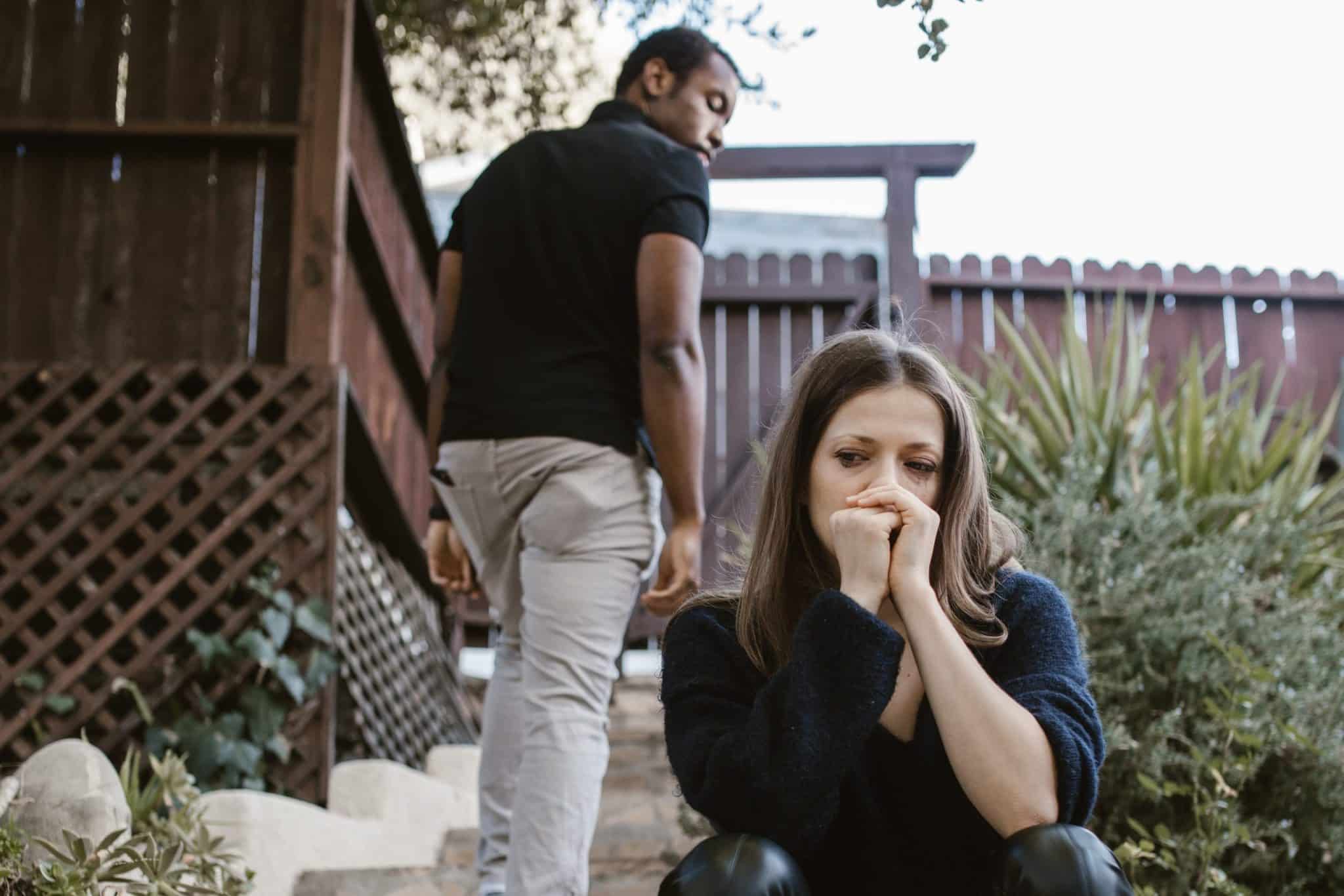
14. Loss of emotional support
In an emotionally detached relationship, you may observe a decrease in the emotional validation you receive from your partner. It may seem that both of you no longer offer or seek essential support from one another, resulting in a feeling of emotional isolation. You might discover that your partner doesn’t emotionally connect with you, leading to detachment and a feeling of being emotionally unsupported in the relationship. Your once romantic relationship is now in dangerous waters!
15. Future planning disconnect
When emotional detachment occurs, you may find that you and your partner fail to envision a future together or make joint plans. Both of you neglect considering each other in your long-term goals and aspirations, indicating a lack of commitment and emotional investment. Here’s what this may look like:
- Planning more solo trips that couple vacations
- Using the “I” language when talking about your future plans, instead of “we”
- A hesitance to make joint long-term investments
- Being unaware of your partner’s plans and goals, and vice versa
So, let’s face it! Emotionally disconnected marriages or relationships are common. You have now read about the signs of it in a relationship. But fret not, my friend! An emotional disconnect in a marriage or relationship doesn’t have to spell the end of the beautiful bond you share with your partner. You must look for signs of emotional detachment in a marriage or relationship and remain open. Voice your concerns and express your feelings. Don’t forget to listen to their perspective actively.
All it takes is effort, an understanding of other people’s emotions, and a willingness to work on the relationship to address and overcome emotional detachment. Don’t worry! You will emerge stronger, with a more fulfilling bond. Trying to sincerely work through a relationship while dating someone with an emotional detachment disorder enables you to understand the perspective of your partner and appreciate it better.
Related Reading: This Is What Happens When There Is A Lack Of Communication In A Relationship
What To Do When You Are Drifting Apart Emotionally in Your Relationship?
We’ve all been there! Sometimes, we feel like we’re drifting apart emotionally in a relationship. But here’s the thing: you don’t have to let it continue. It’s important to address the issue head-on. You must engage in all ways aimed at stopping you from drifting apart and overcoming emotional detachment before it leaves an indelible mark on your relationship. So, what’s the game plan?
- Communicate with your partner: Start by having an open and honest conversation with your partner. Find a peaceful spot to express your feelings and concerns without judgment. Relationships thrive on open communication. Hence, creating that safe space where you can talk your mind out without the fear of being misunderstood is very important
- Do things together: Reconnect through shared experiences and activities that bring you joy. Engage in hobbies you love, plan fun outings, and create new memories together. A positive coping mechanism would be to reach out and engage in activities that reignite the spark between you two
- Spend time talking: Remember to prioritize quality time together and create opportunities for deep conversations. Live in the present moment rather than dwell upon past mistakes. Dr. Bhonsle states, “Deep conversations lead to deep insights, which makes the relationship grow deeper.”
- Seek professional advice: Seeking couples therapy or relationship counseling can also be beneficial in navigating through emotional distance. According to proven studies, almost 49% of couples seek couples therapy in their lifetime
Ultimately, it’s about acknowledging the issue, building self-awareness, fostering open communication, and rebuilding emotional connection. Human connection with the outside world is imperative for creating a safe space for both of you and for you to express yourself freely.
Key Pointers
- It’s important to recognize the signs of emotional detachment in your relationship
- Causes of emotional detachment include stress, conflicts, and life changes
- Emotional detachment in a relationship can be managed by communicating openly and without judgment, reconnecting through shared experiences, and couples therapy to rebuild the emotional connection
If you’ve noticed signs of emotional distance in your relationship or are dating someone with emotional detachment, don’t worry — it happens to the best of us! But here’s the good news: you can change things. Start by openly and honestly discussing your feelings with your partner, listening to their side, as communication goes both ways.
Inject some excitement by planning fun activities and exploring new adventures together. Quality time is key to strengthening your bond. So, create amazing memories! Rekindle those positive emotions! It is possible to reignite the spark with effort, understanding, and patience and build a stronger, more fulfilling relationship. Chin up, my friend, you’ve got this!
11 Ways An Insecure Partner Drains A Relationship And 5 Ways To Fix It
11 Warning Signs Of Lack Of Emotional Connection In Relationships
Your contribution does not constitute a charitable donation. It will allow Bonobology to continue bringing you new and up-to-date information in our pursuit of helping anyone in the world to learn how to do anything.

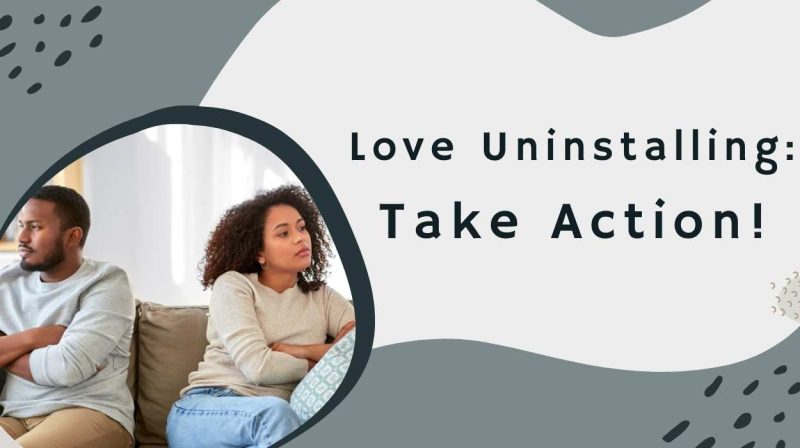

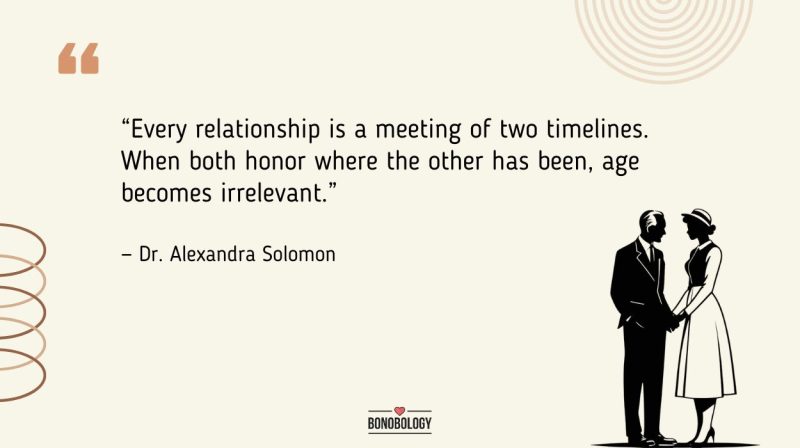
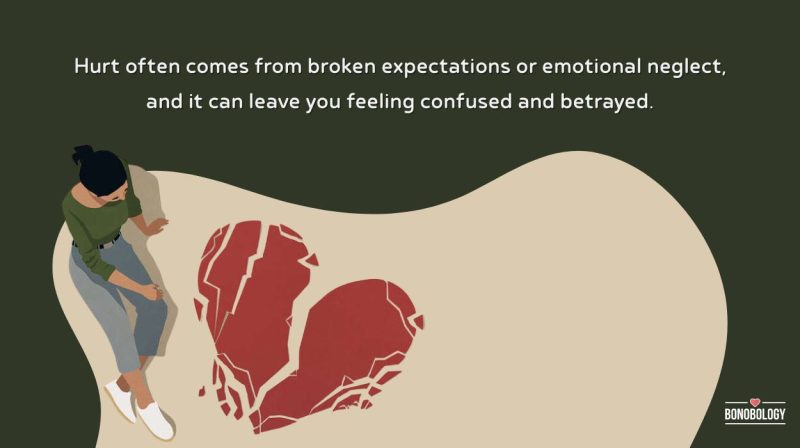

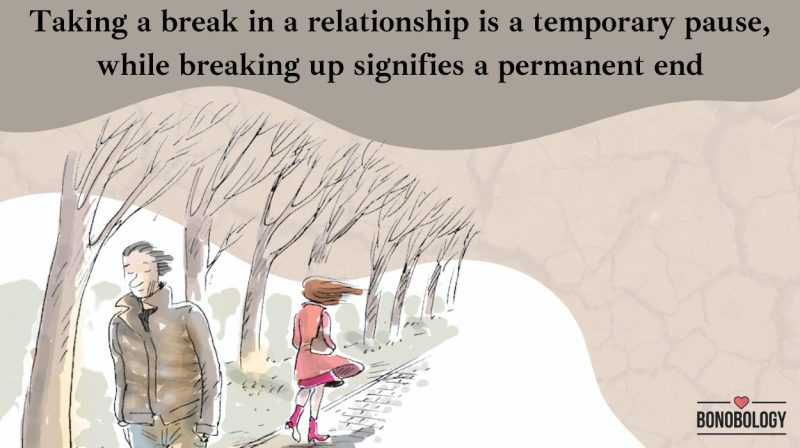


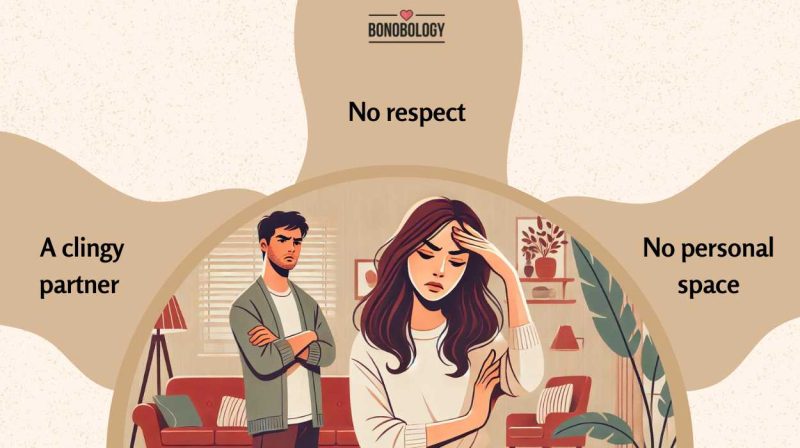
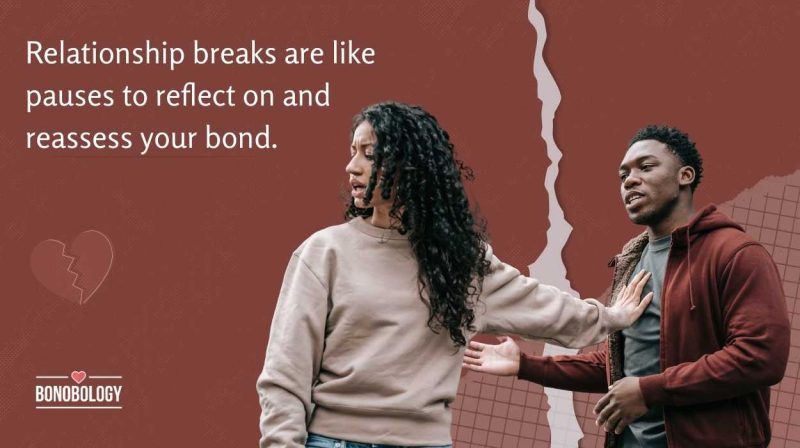
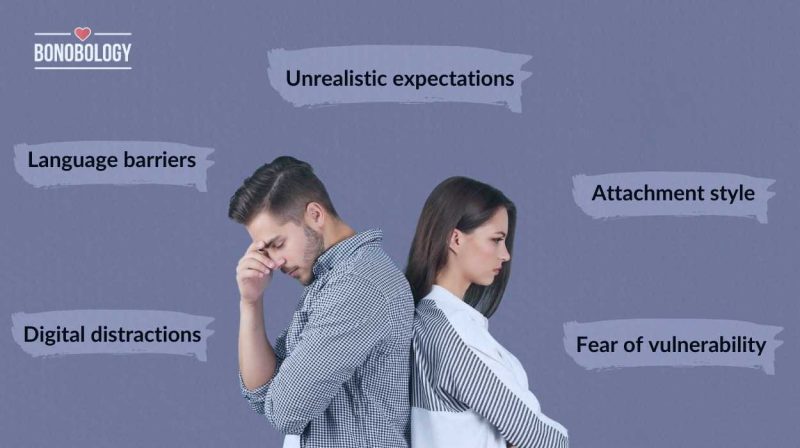
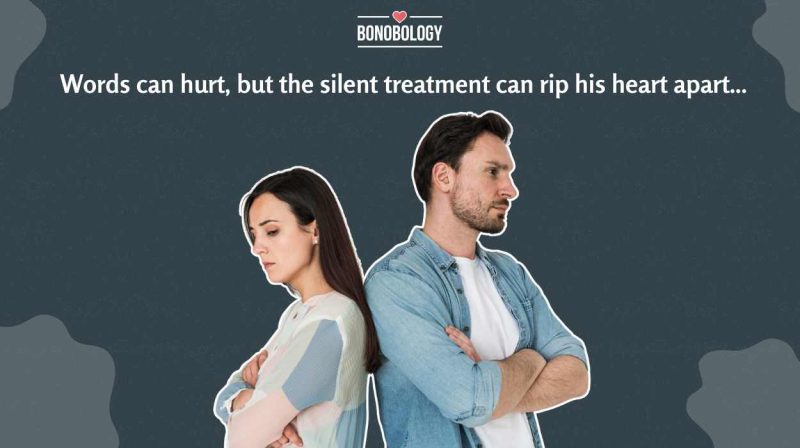
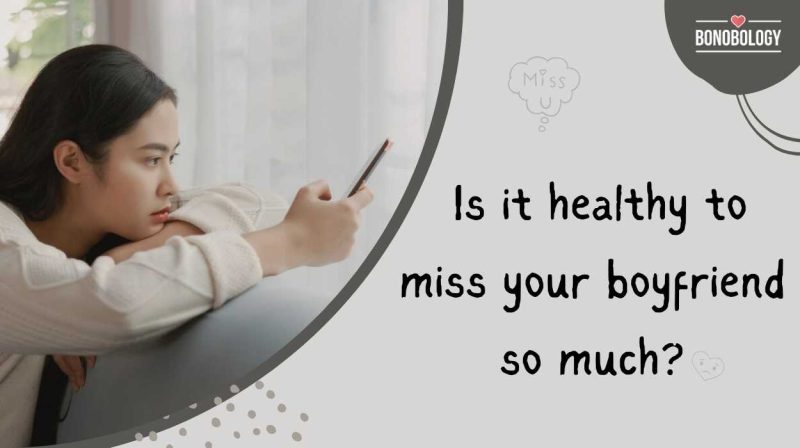
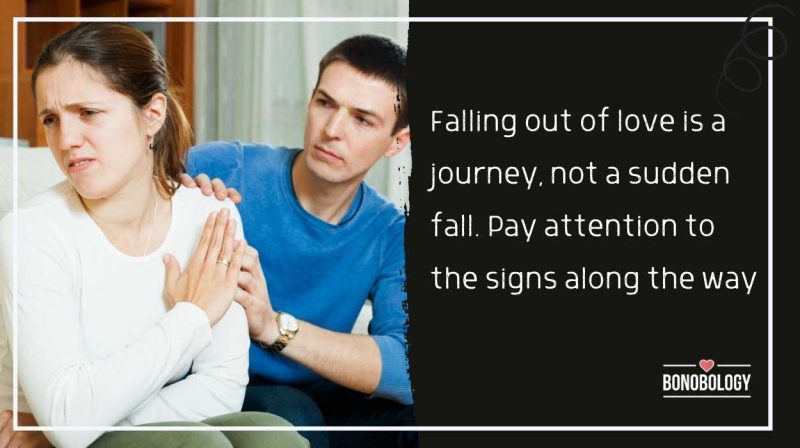
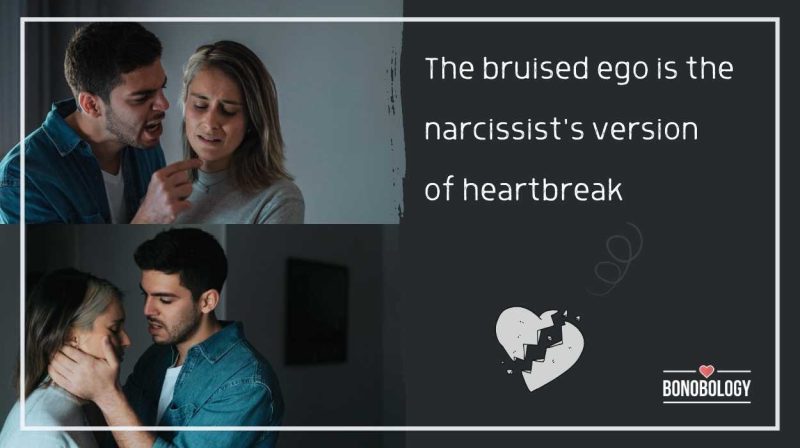
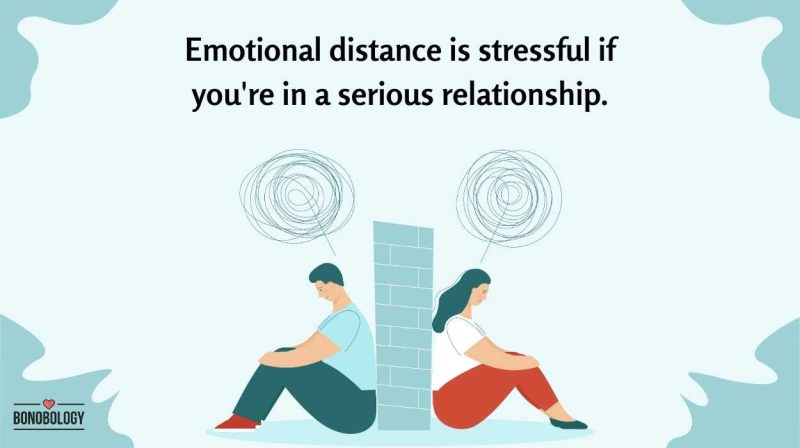
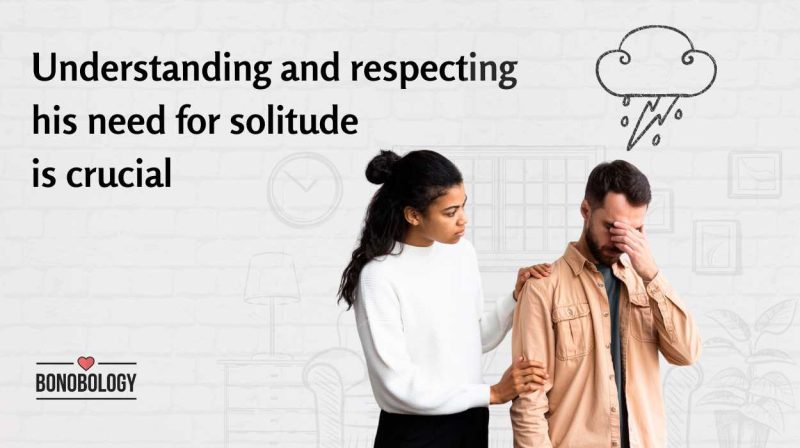
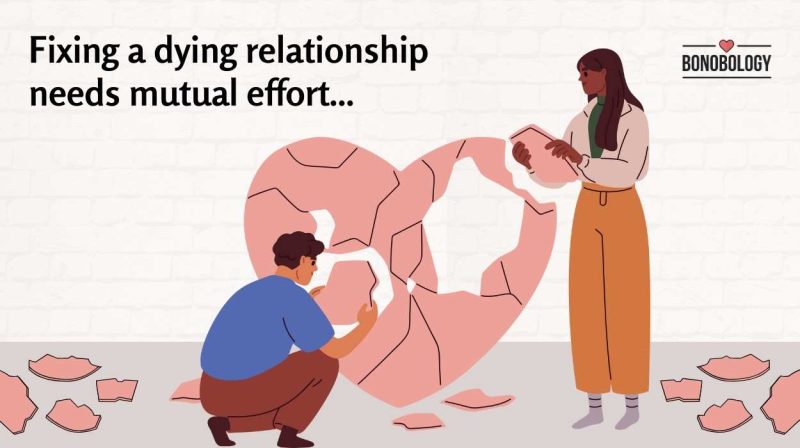
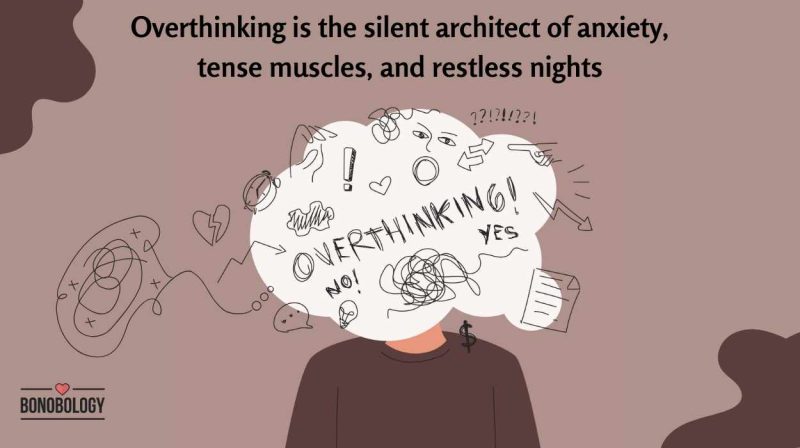
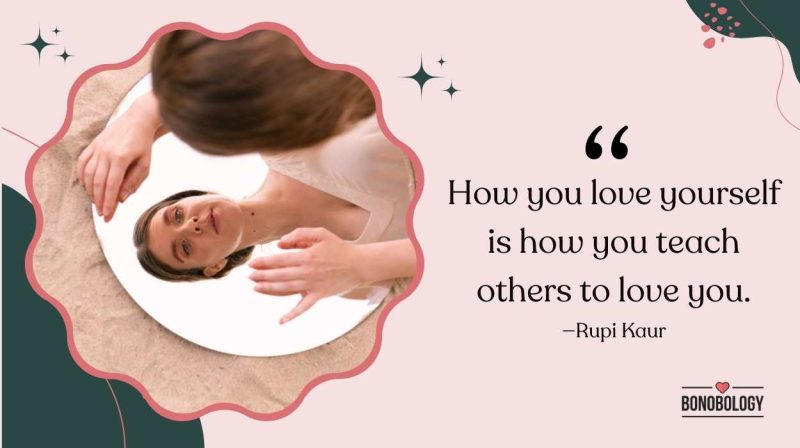
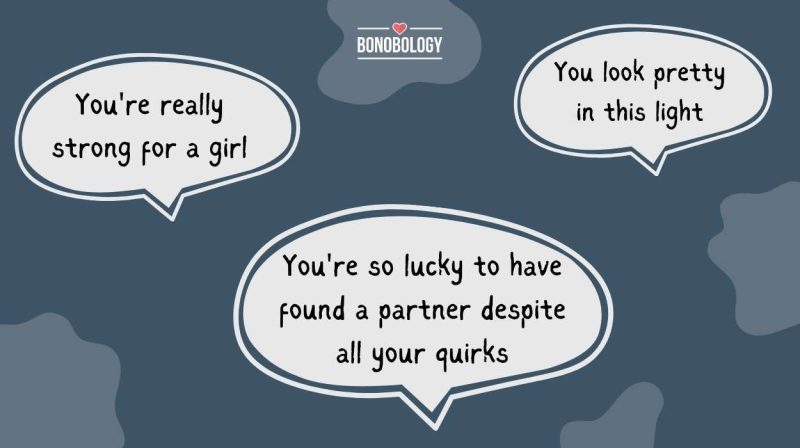
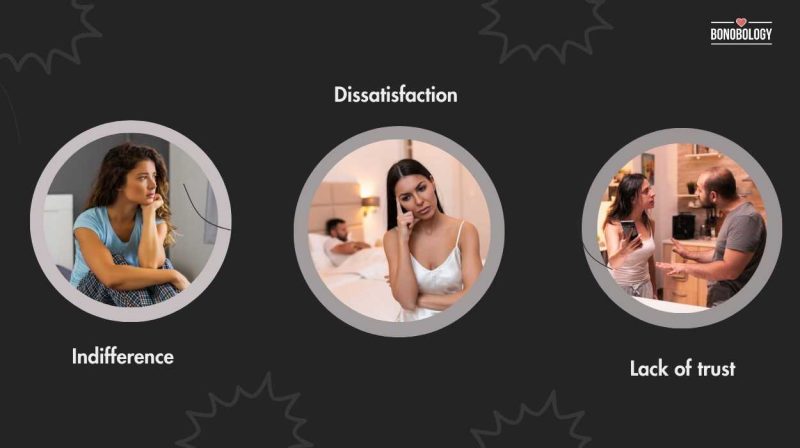
Featured
Can 20‑Year Age Gap Relationships Really Work?
Disappointed When Someone You Love Hurts You? Coping and Healing Guide
17 Deadly Signs Of An Immature Man And How To Deal
What Is A Break In A Relationship And How To Navigate It
Emotional Abandonment In Marriage: Signs, Causes, And Ways To Cope
15 Signs That Your Girlfriend Isn’t Sexually Attracted To You
Feeling Suffocated In A Relationship: Reasons, Signs, Ways To Deal
How Long Should A Relationship Break Be? A Therapist Answers
Why Do I Struggle To Communicate With My Partner? An Expert Answers
Will He Come Back After Silent Treatment? 15 Ways To Make Sure He Does
Why Do I Miss My Boyfriend So Much: Reasons And Ways To Deal
21 Clear Signs She Doesn’t Want A Relationship With You
How Narcissists Treat Their Exes — 11 Common Things They Do And How You Can Respond
Emotional Distance: Meaning, Causes, Signs, And Ways To Fix
My Boyfriend Is Grieving And Pushing Me Away: Tips To Cope And Comfort Your Man
What To Do When Your Relationship Is At Breaking Point?
Am I Overthinking Or Is He Losing Interest? 18 Signs To Help You Identify
Discover Your Worth: 13 Ways To Feel Loved And Appreciated
23 Backhanded Compliment Examples in Everyday Life That Are Actually Insults
11 Things That Happen When A Woman Shuts Down Emotionally – And How To Reconnect